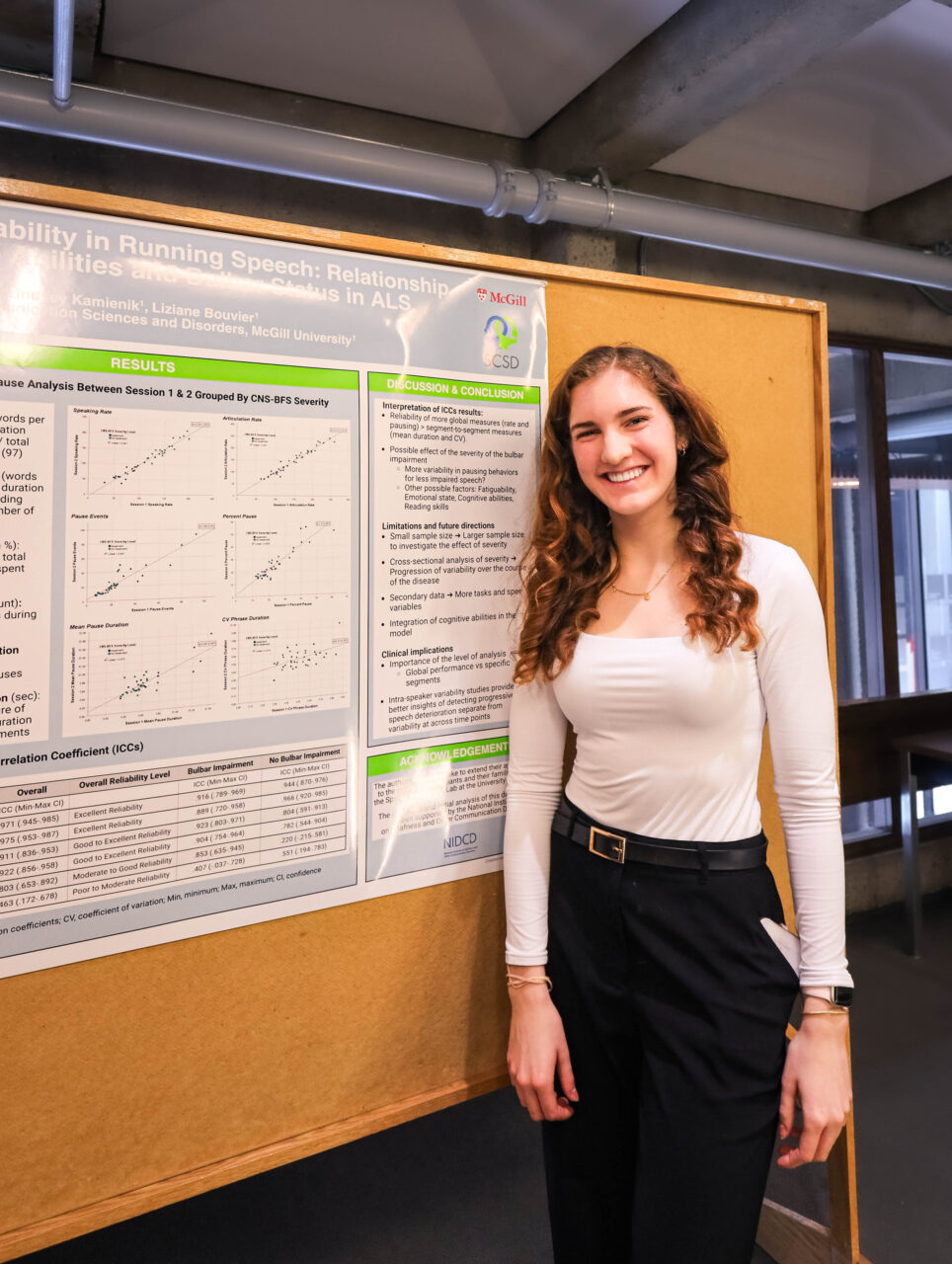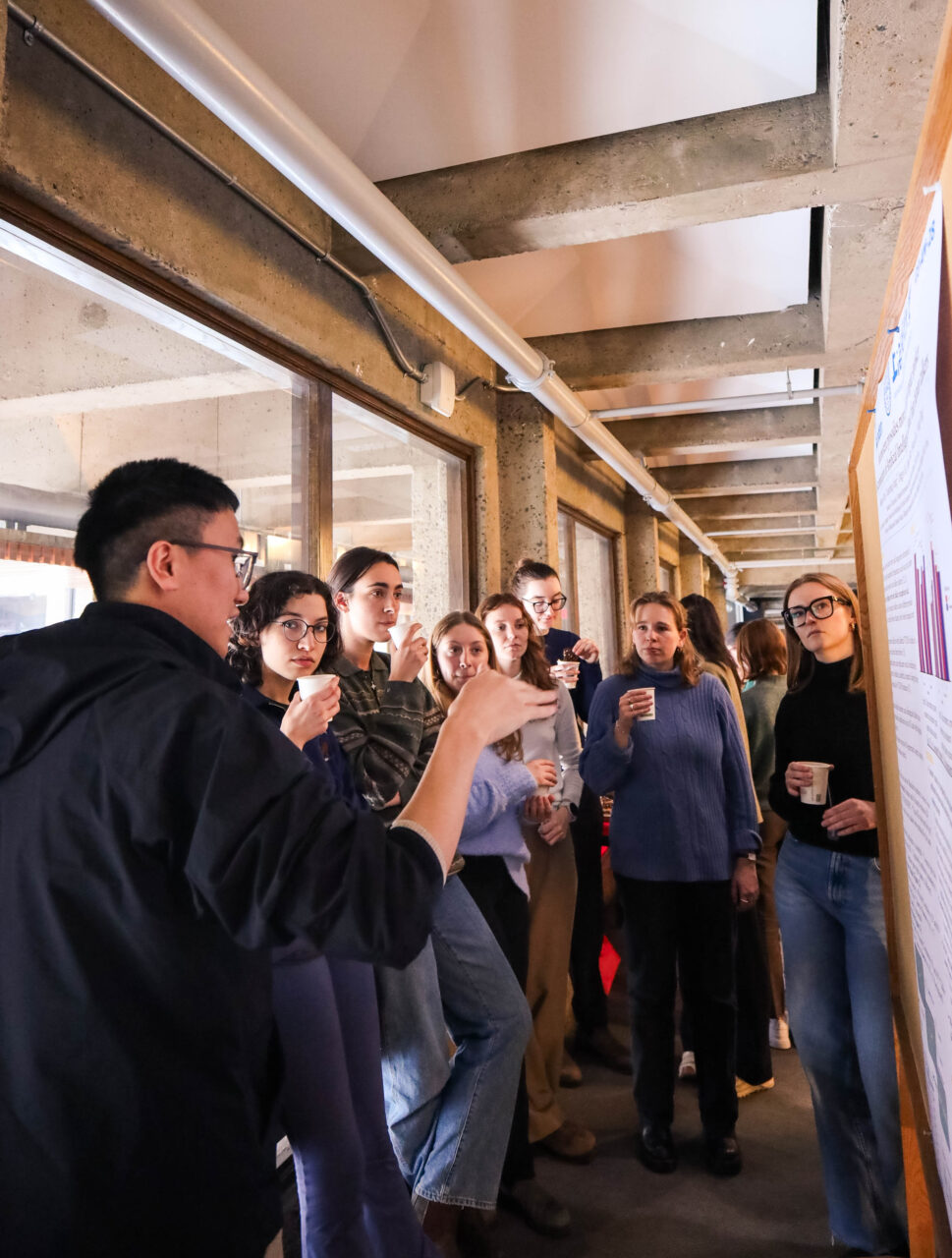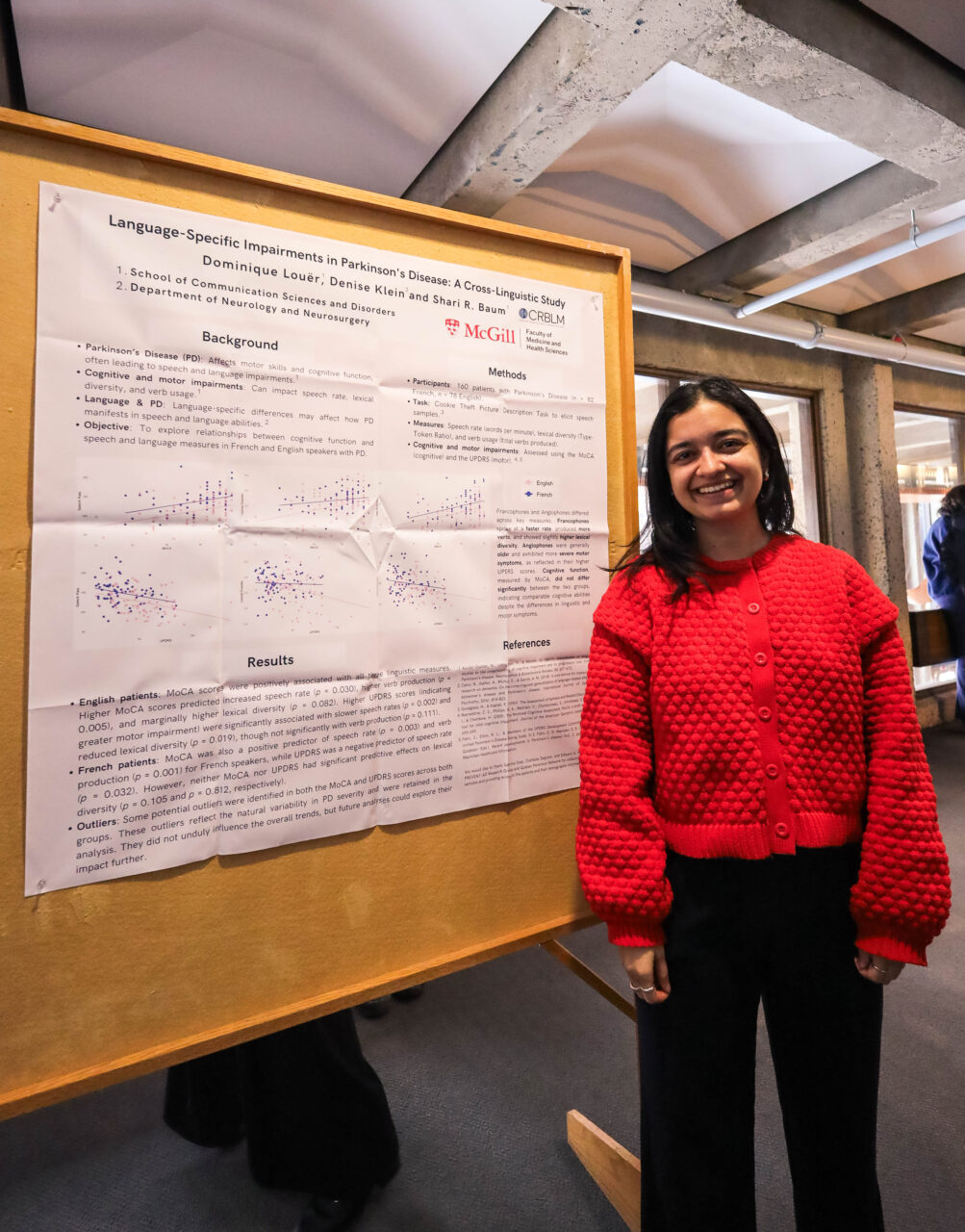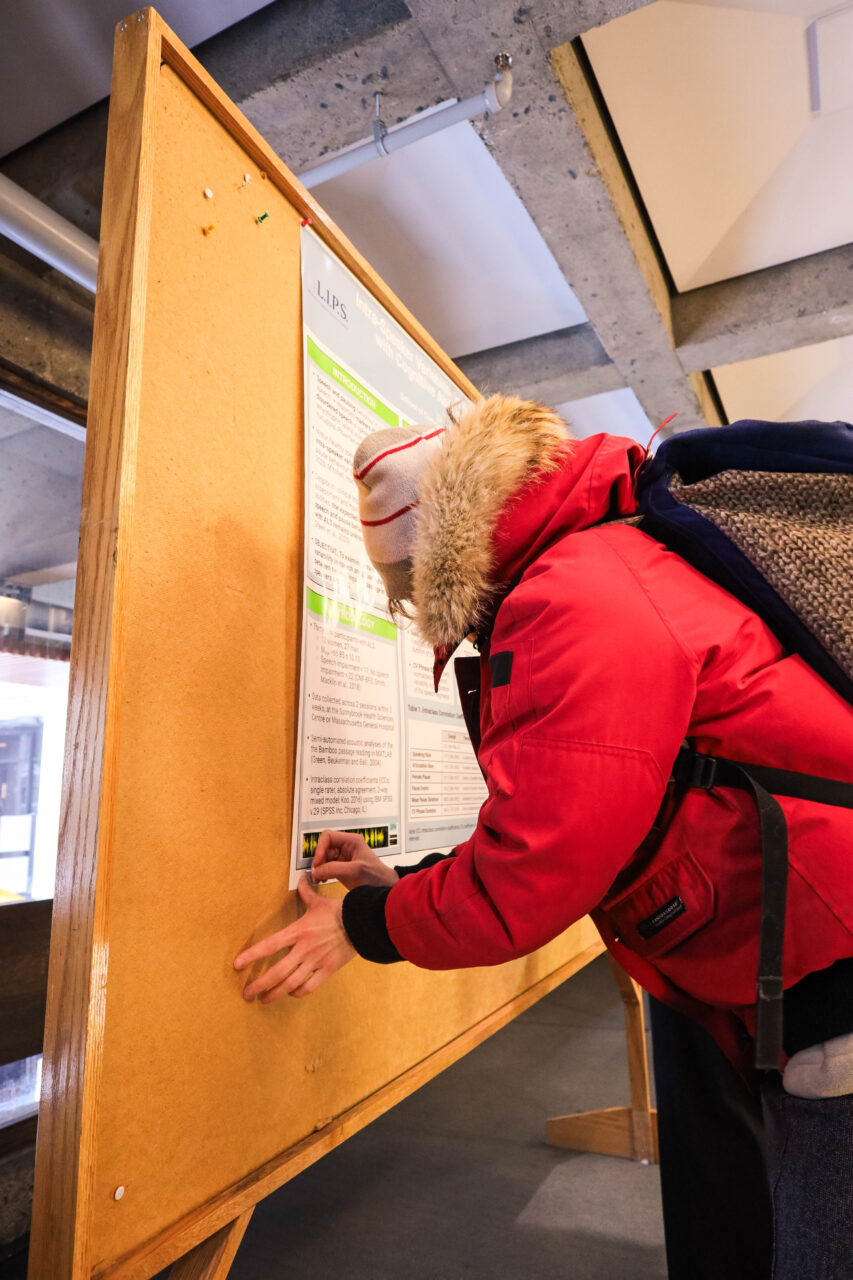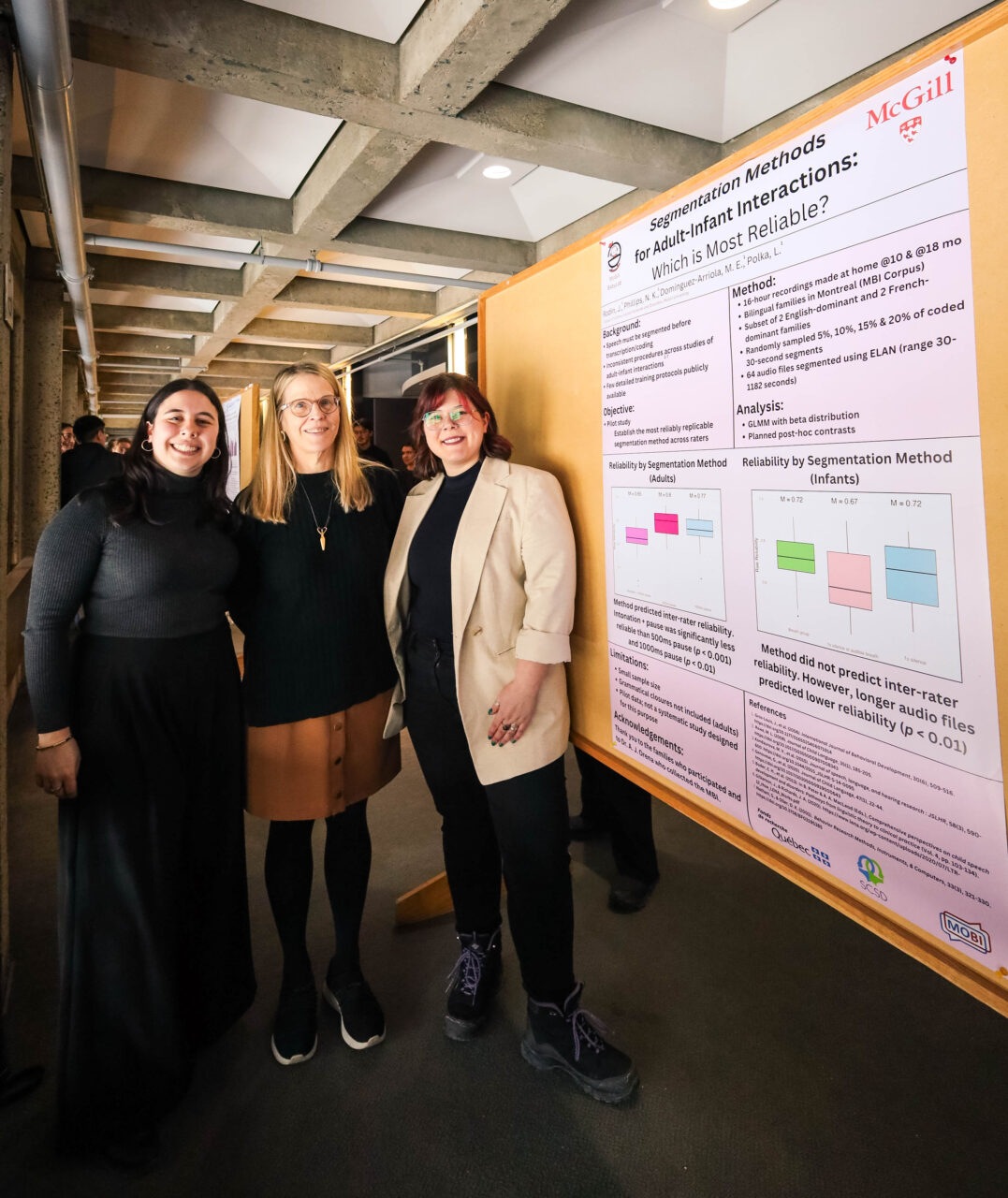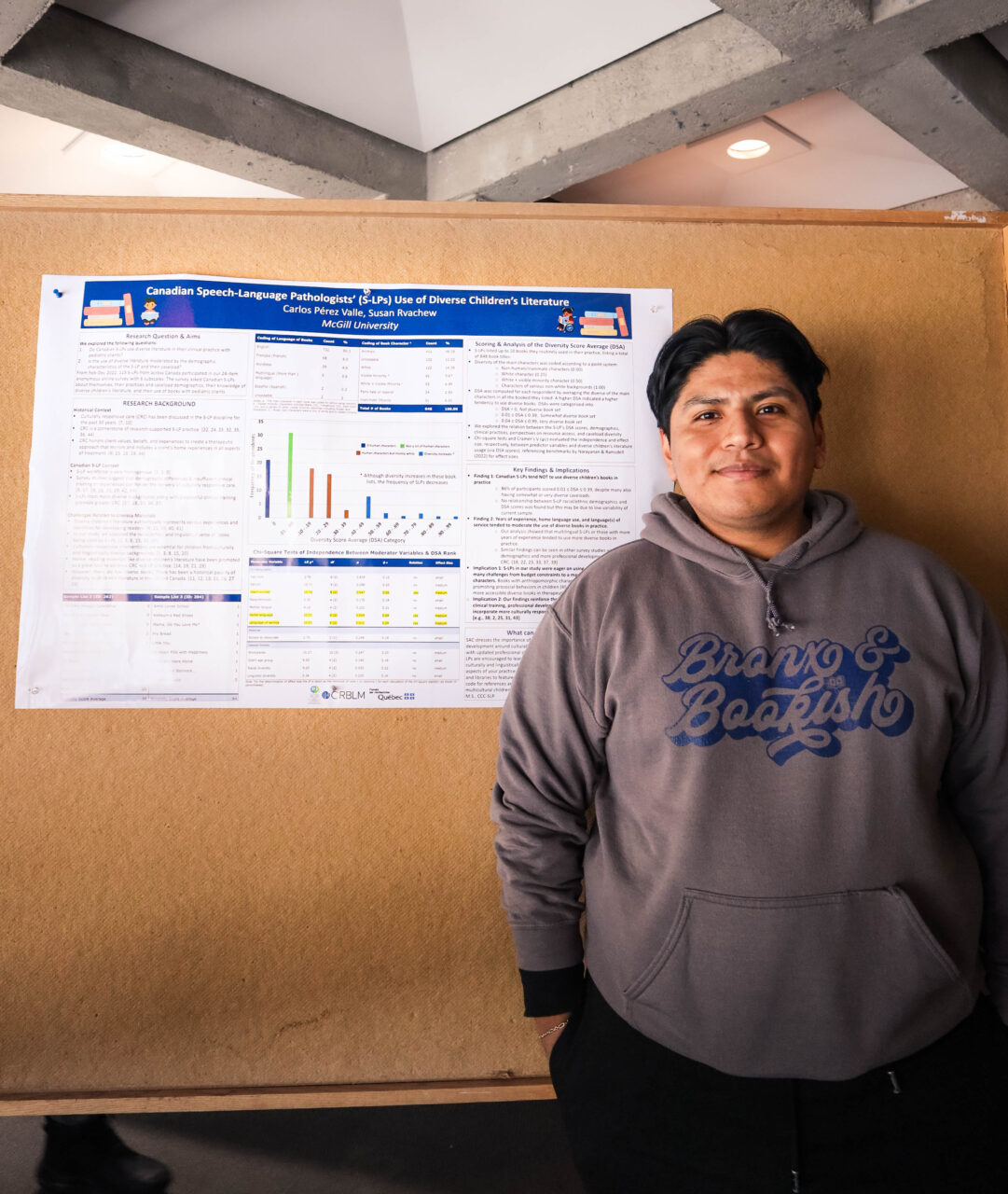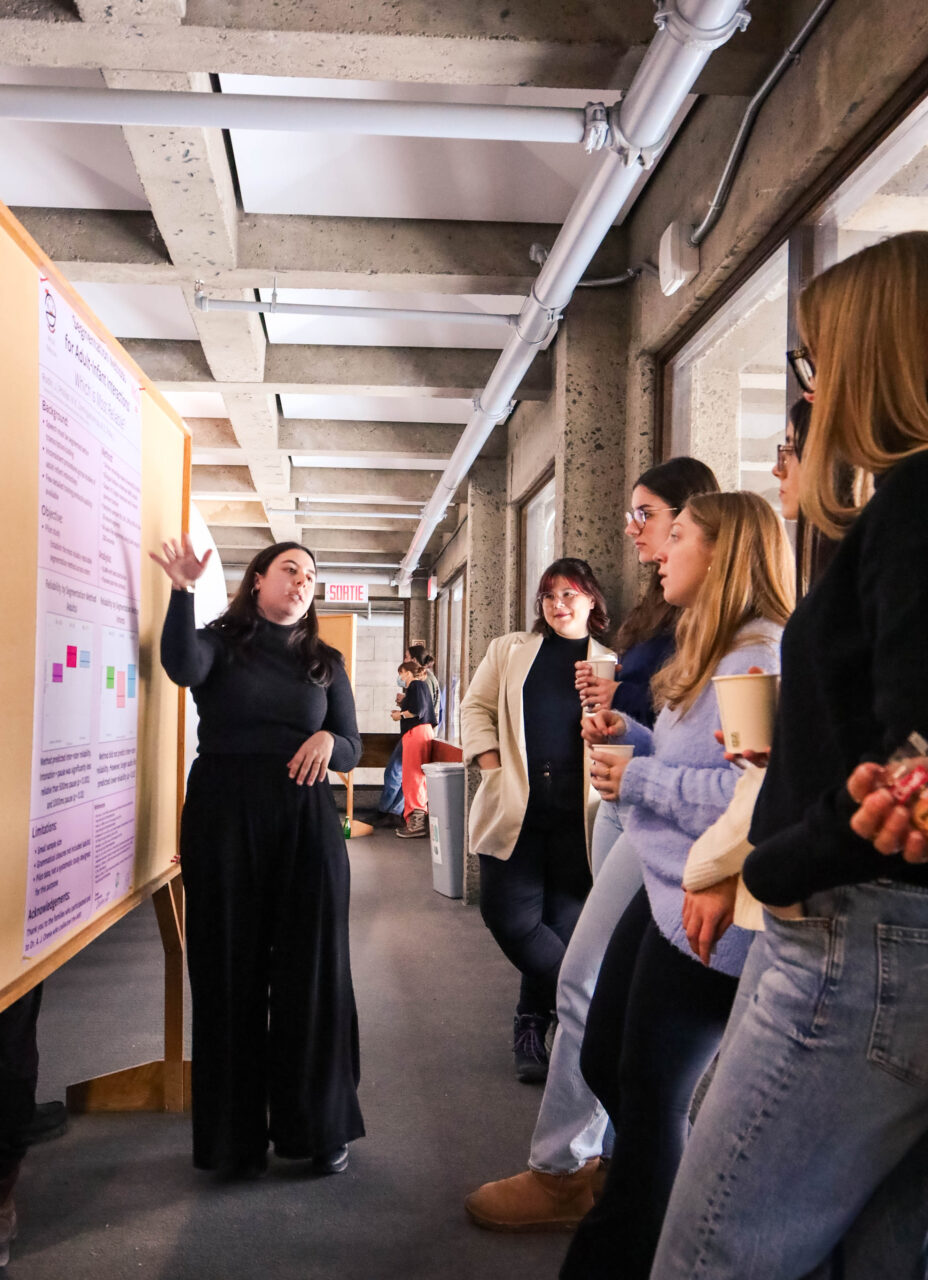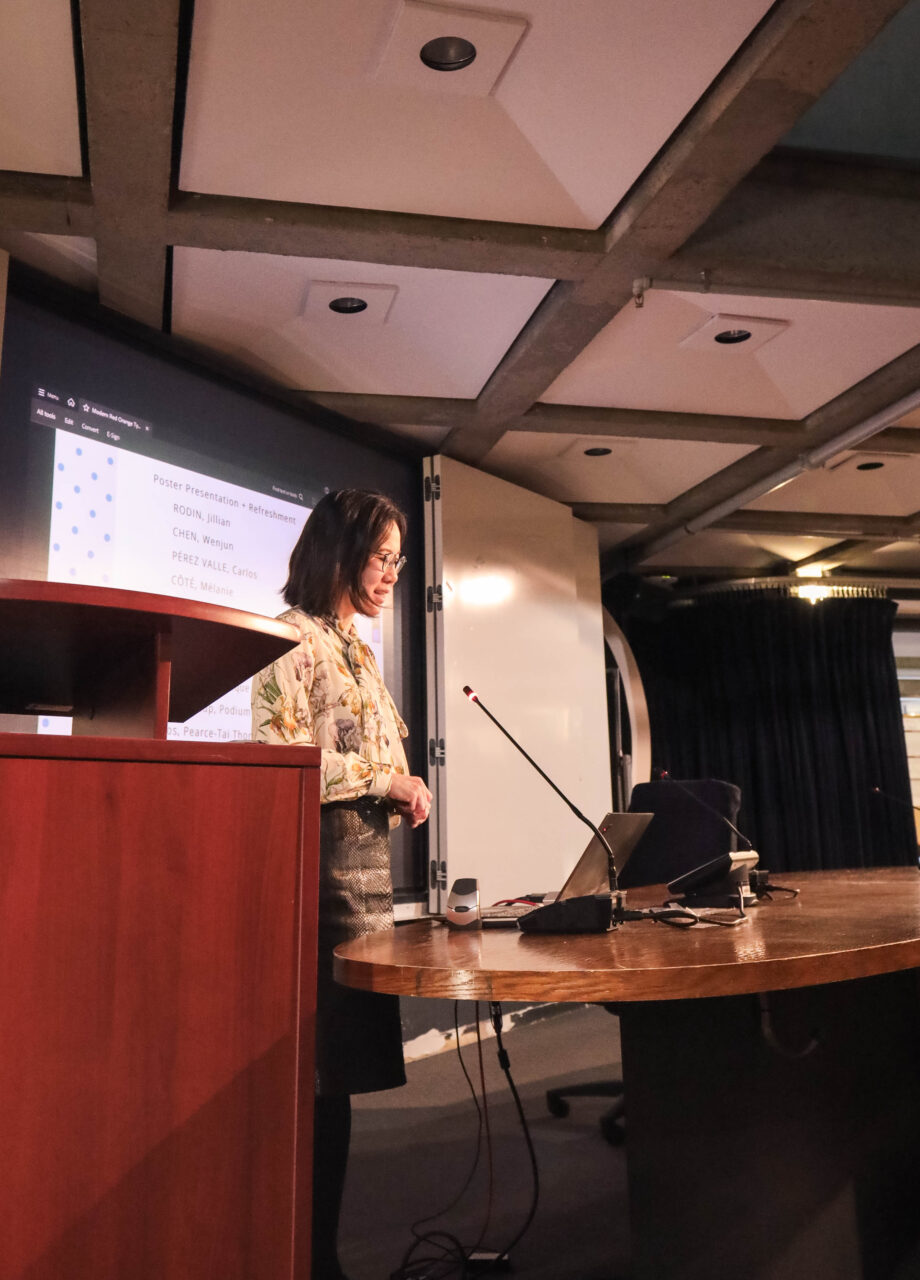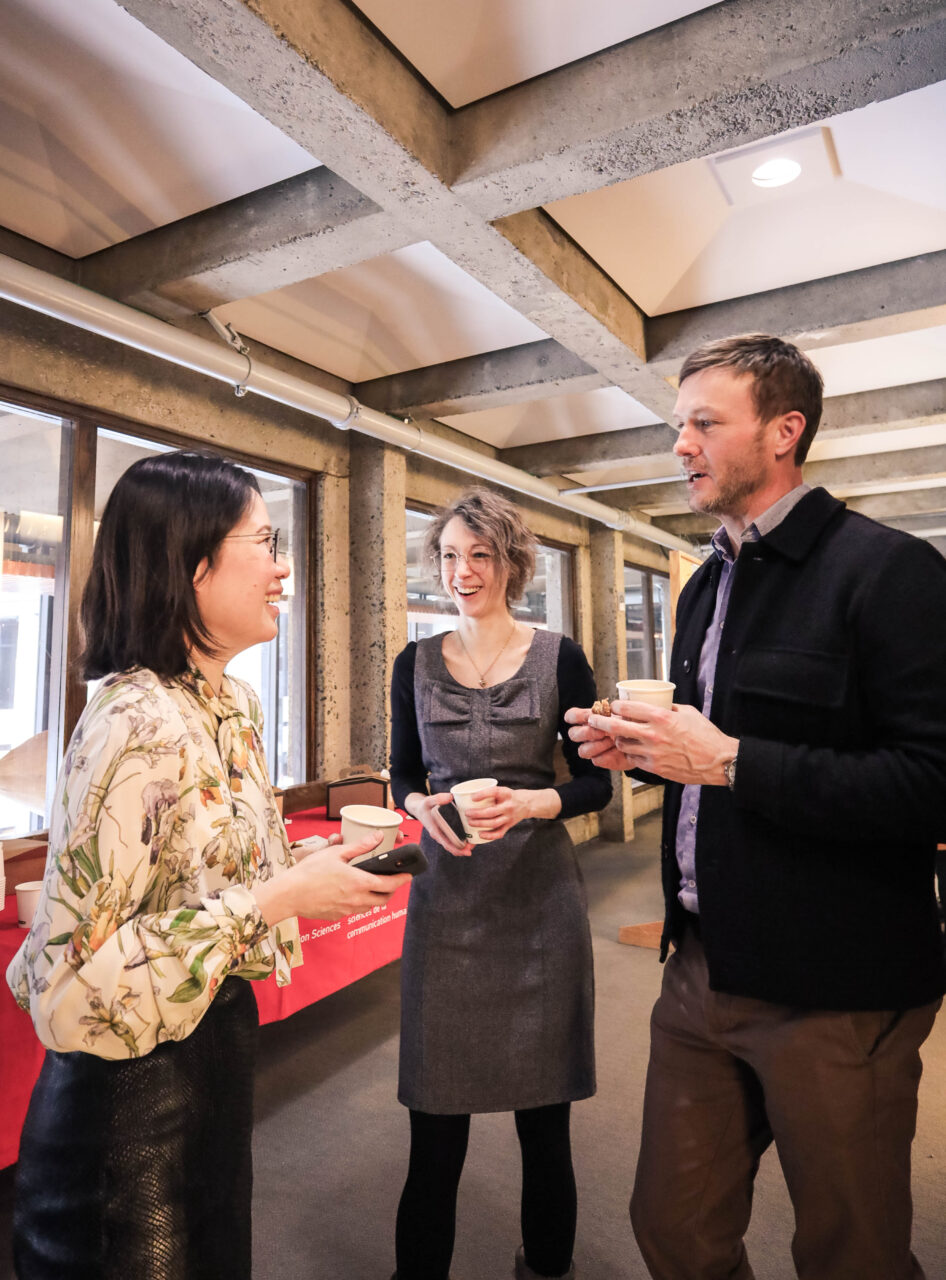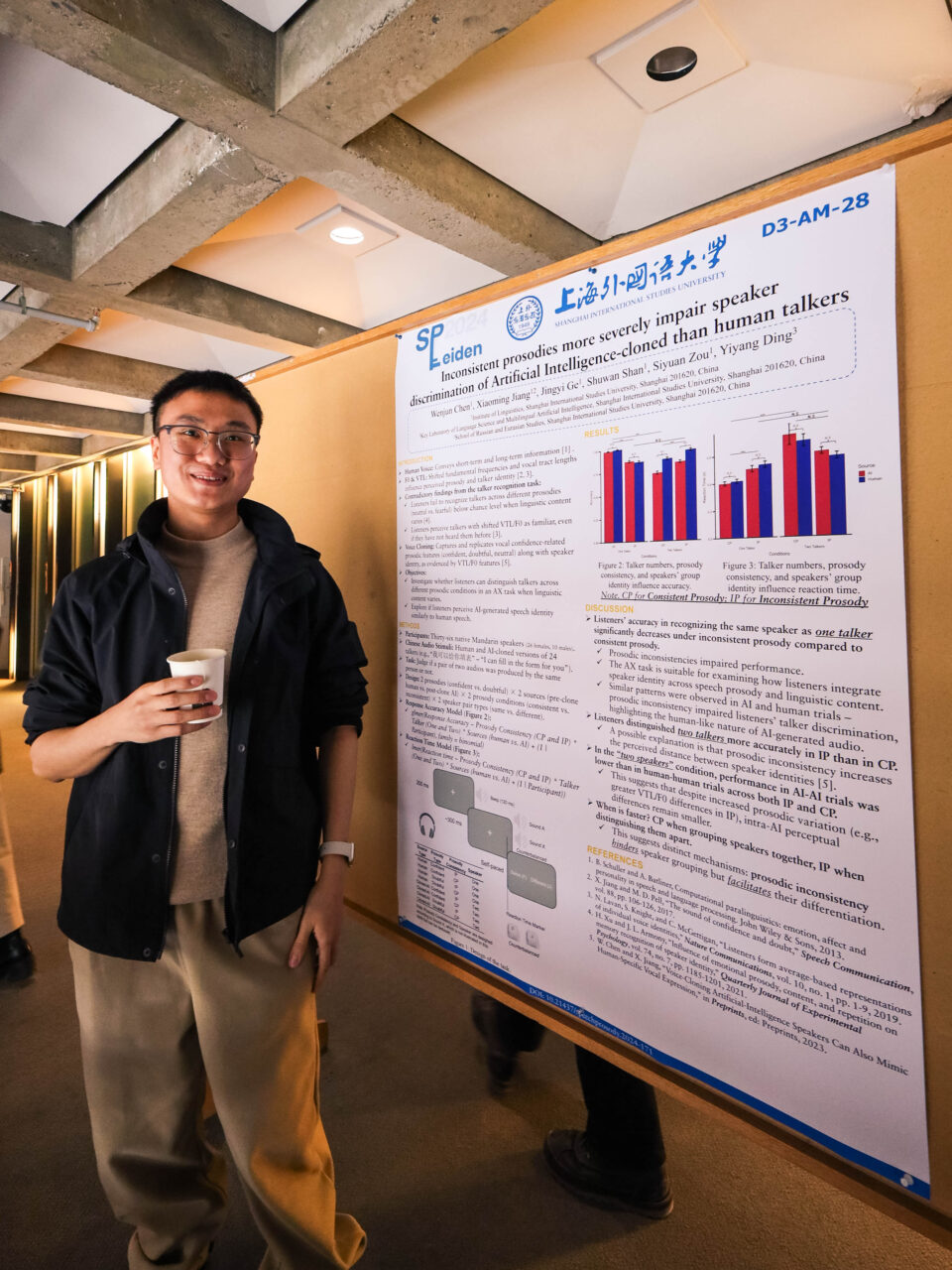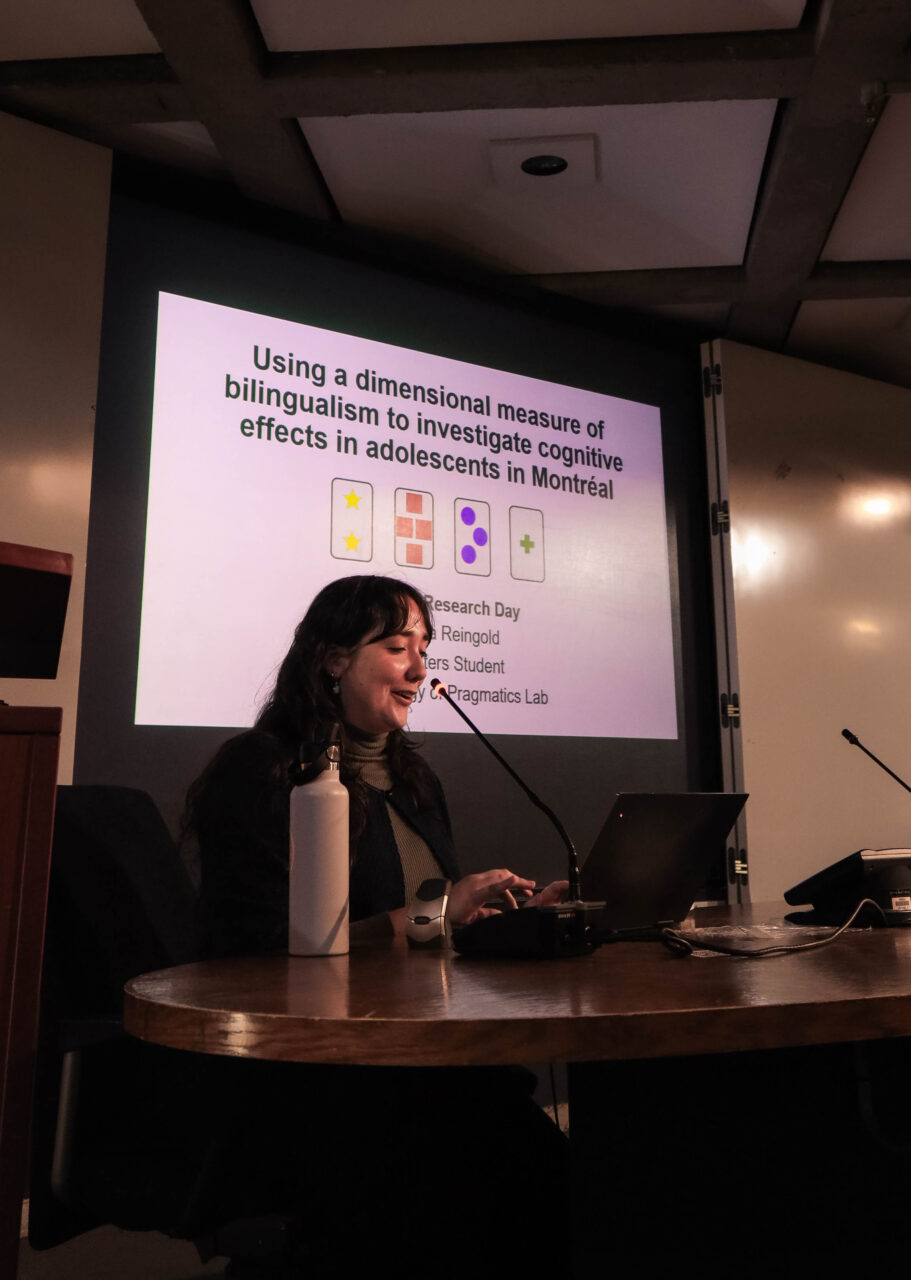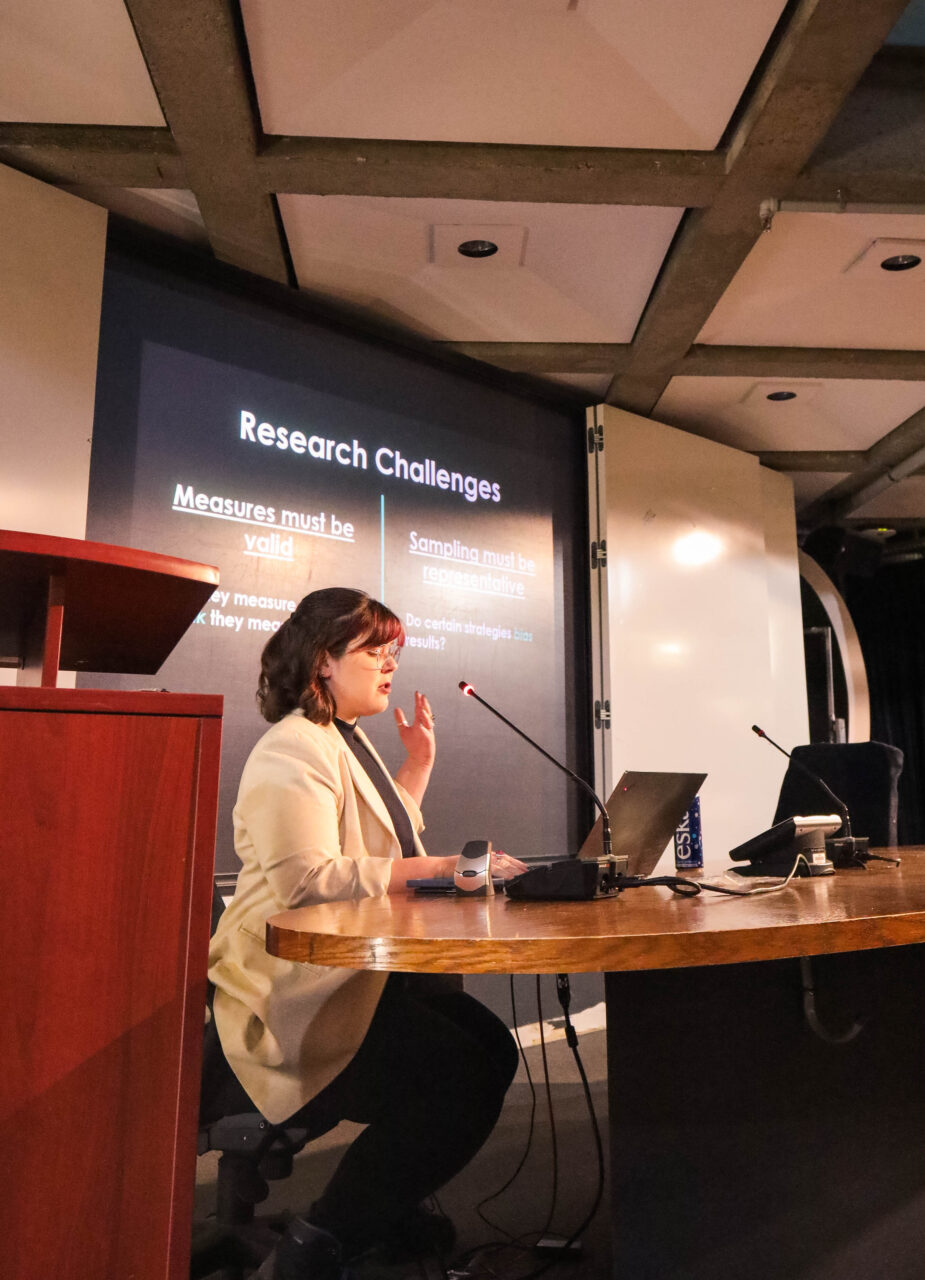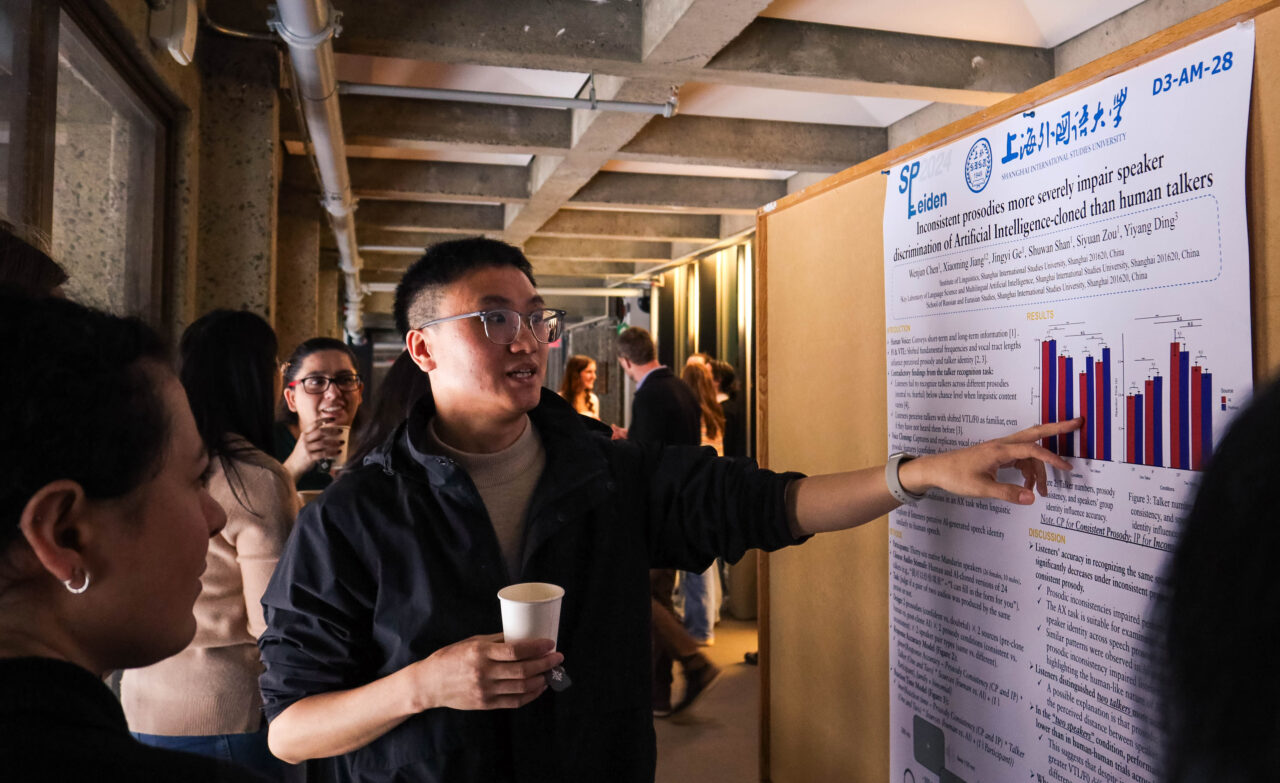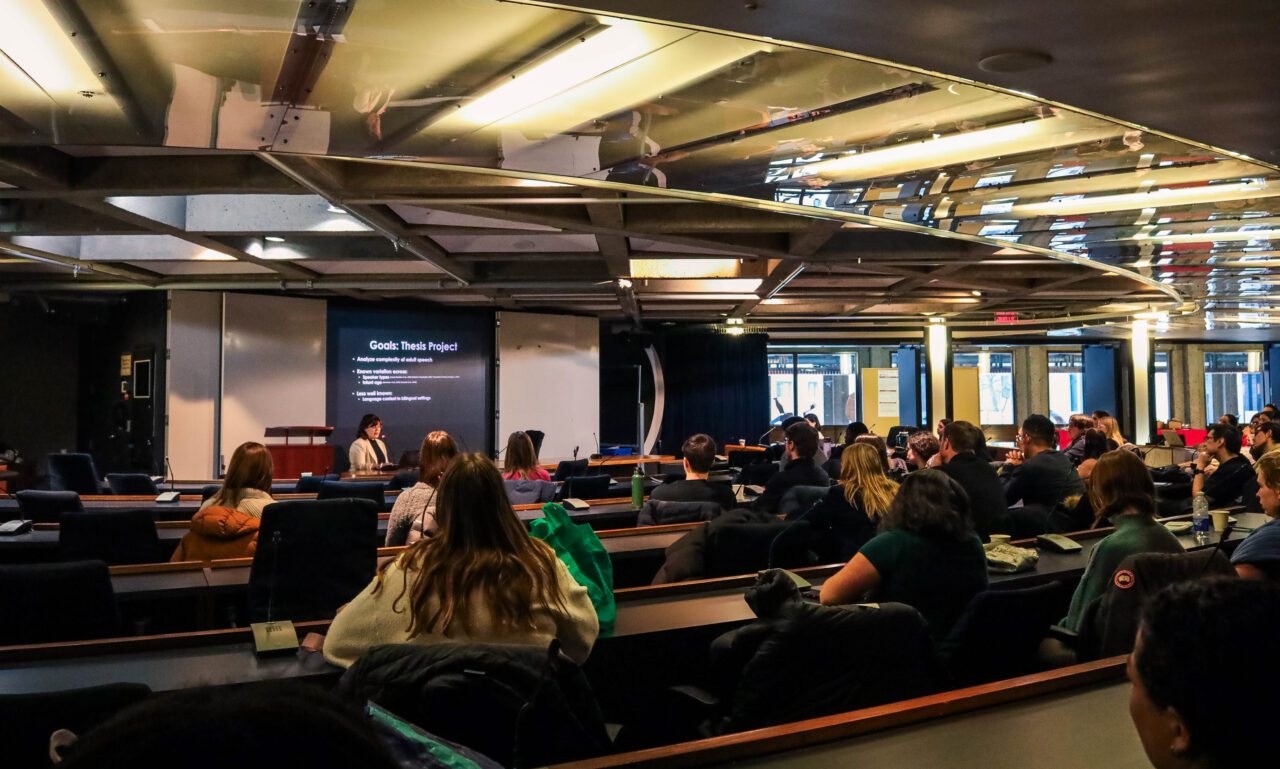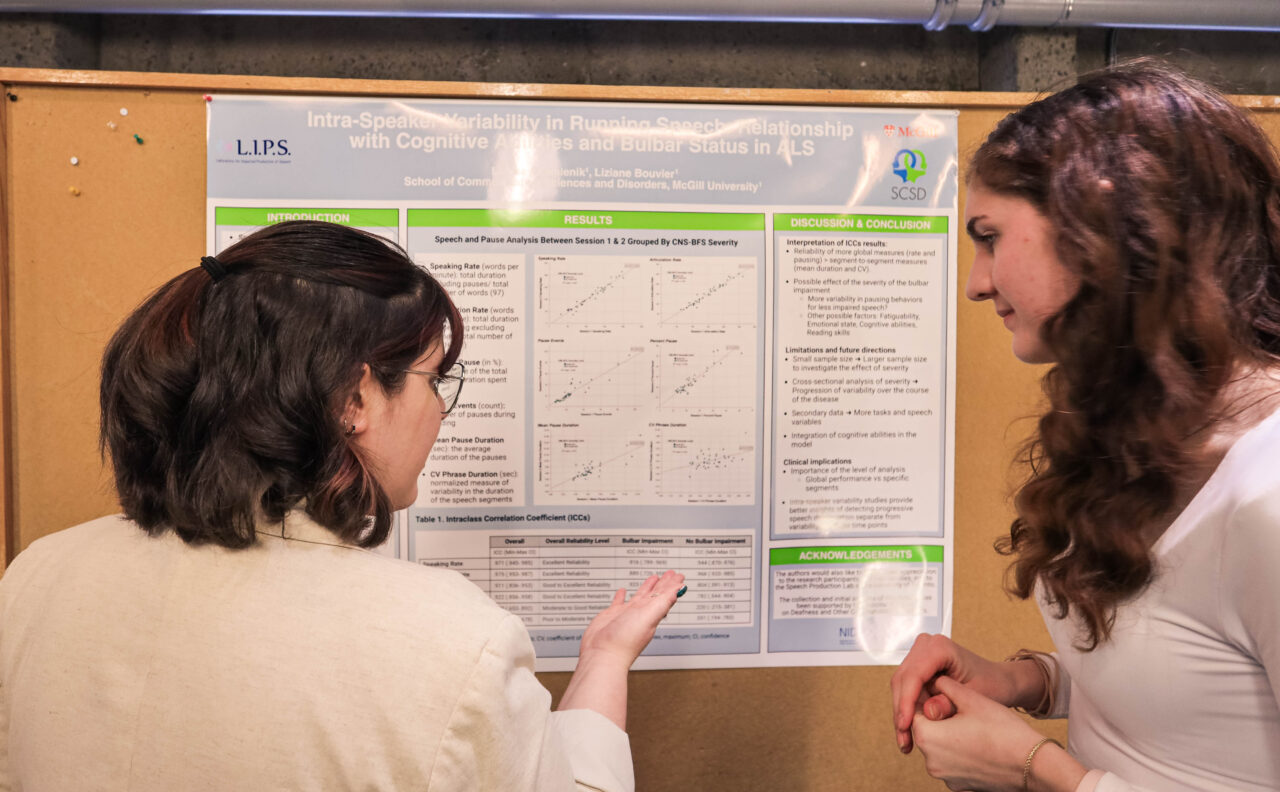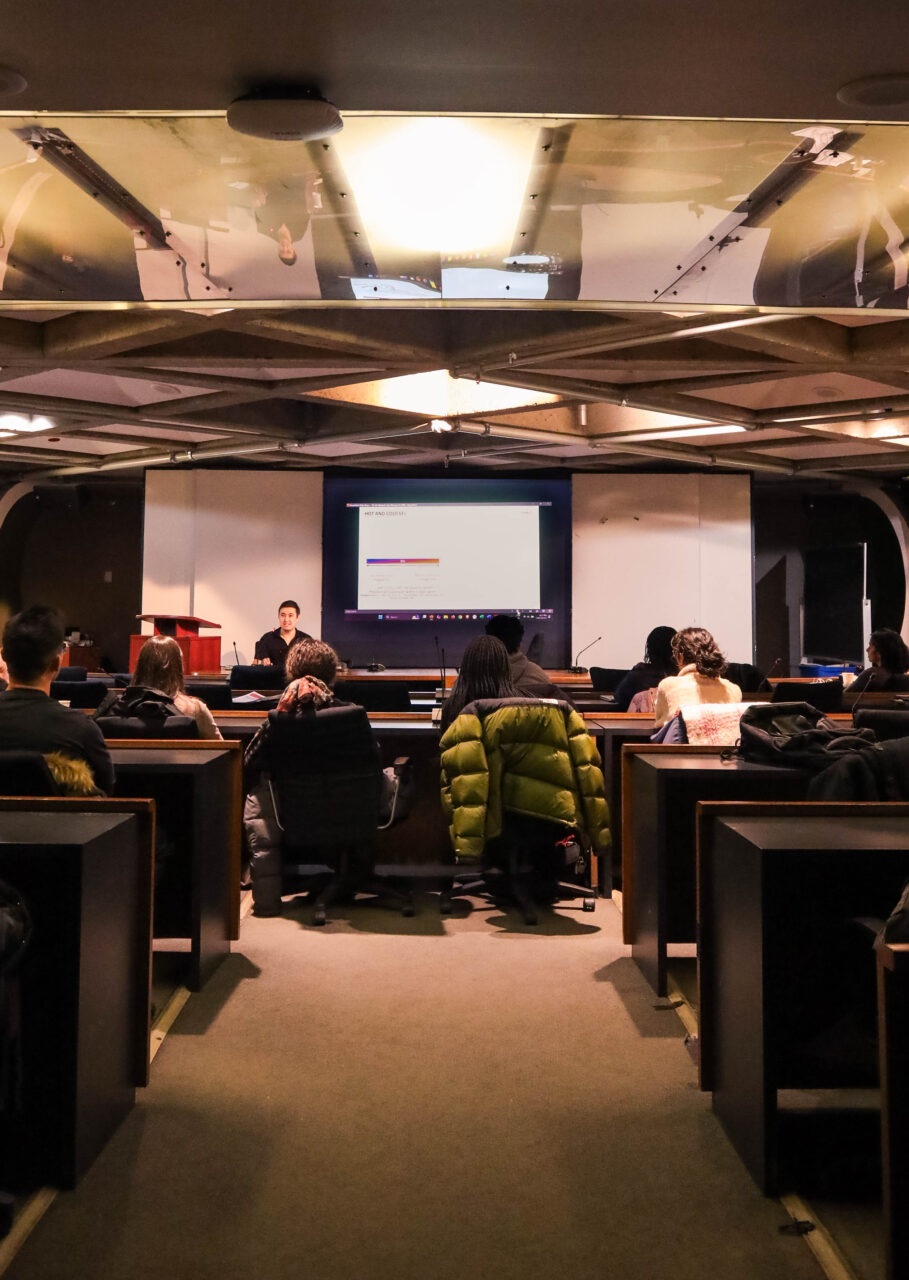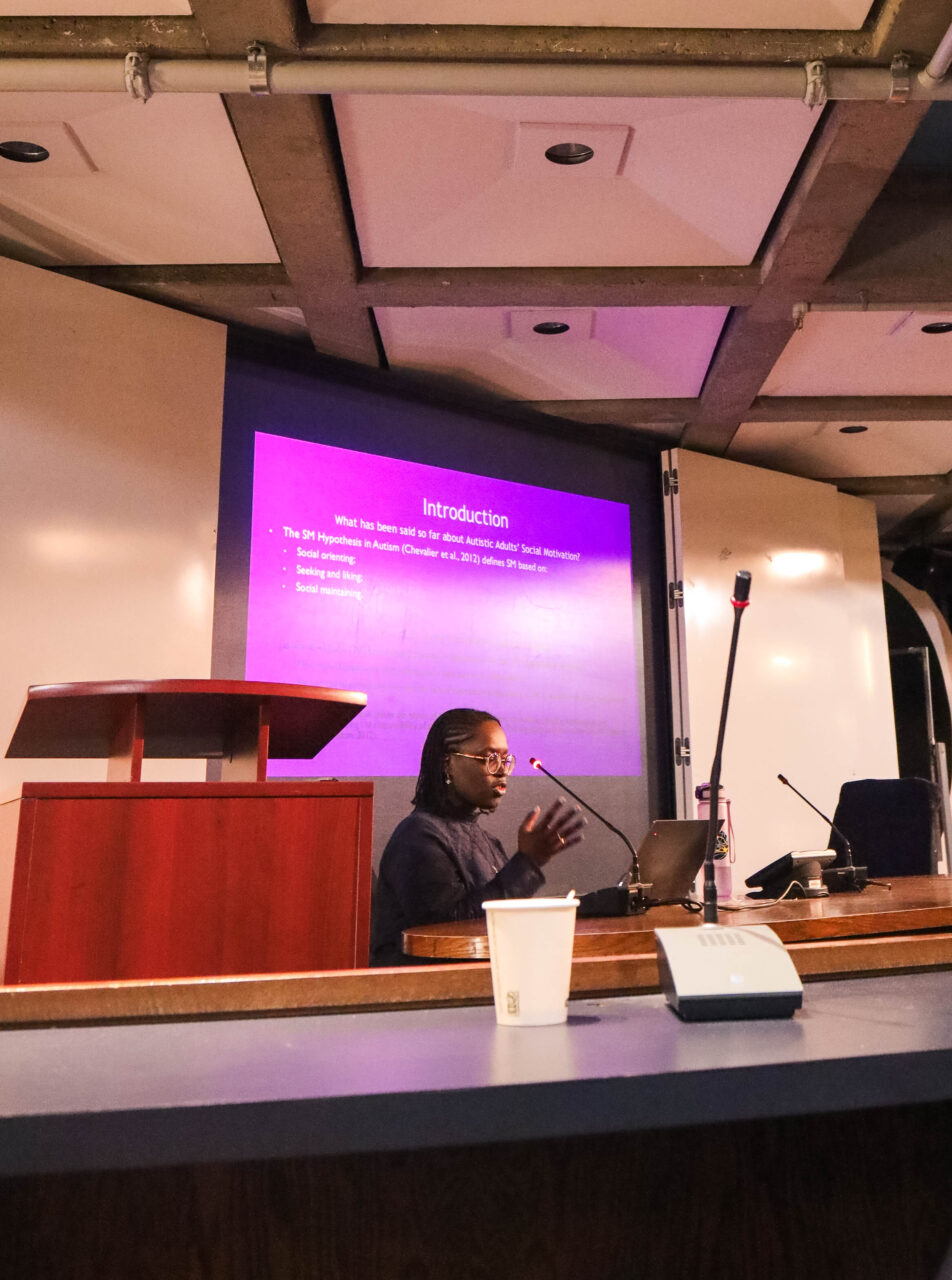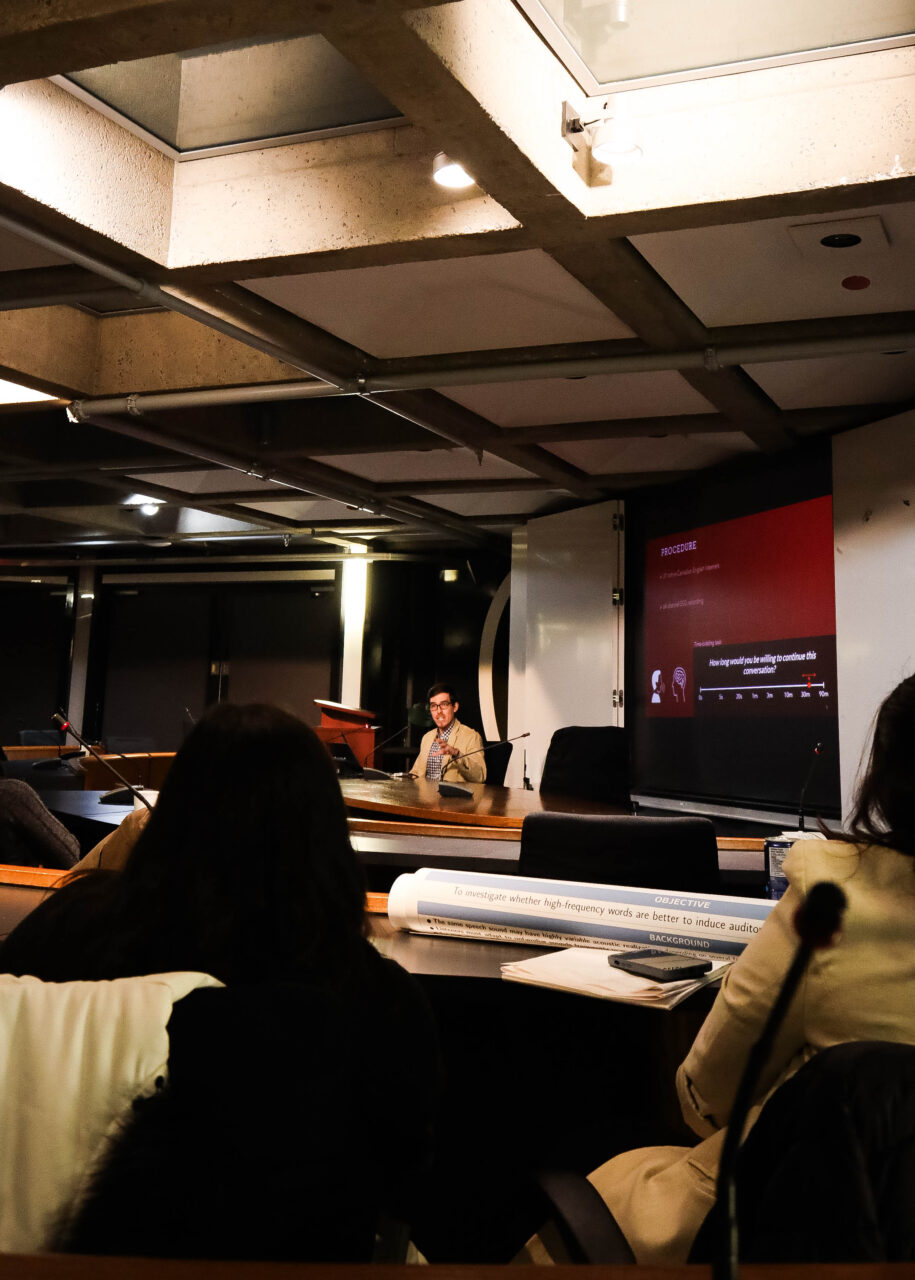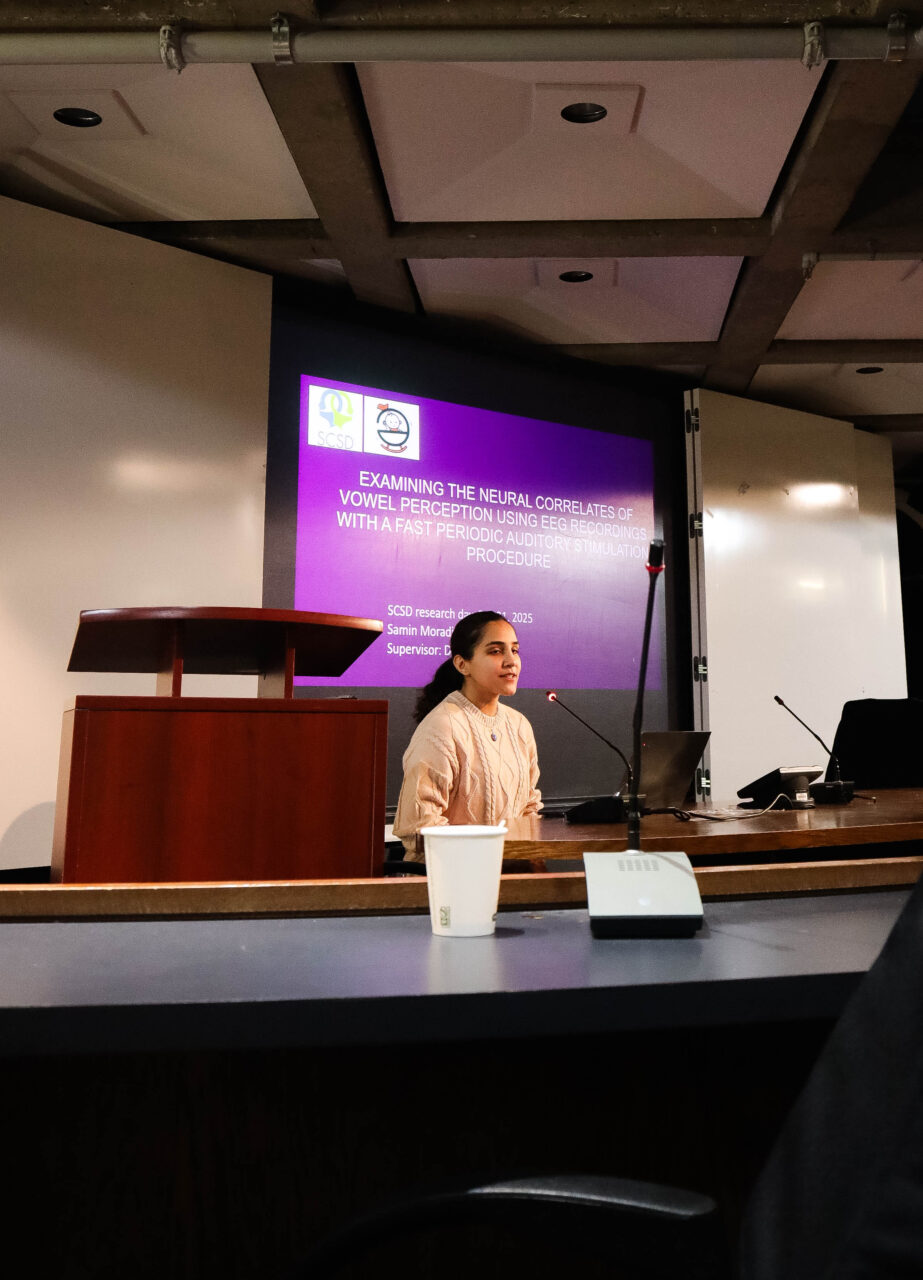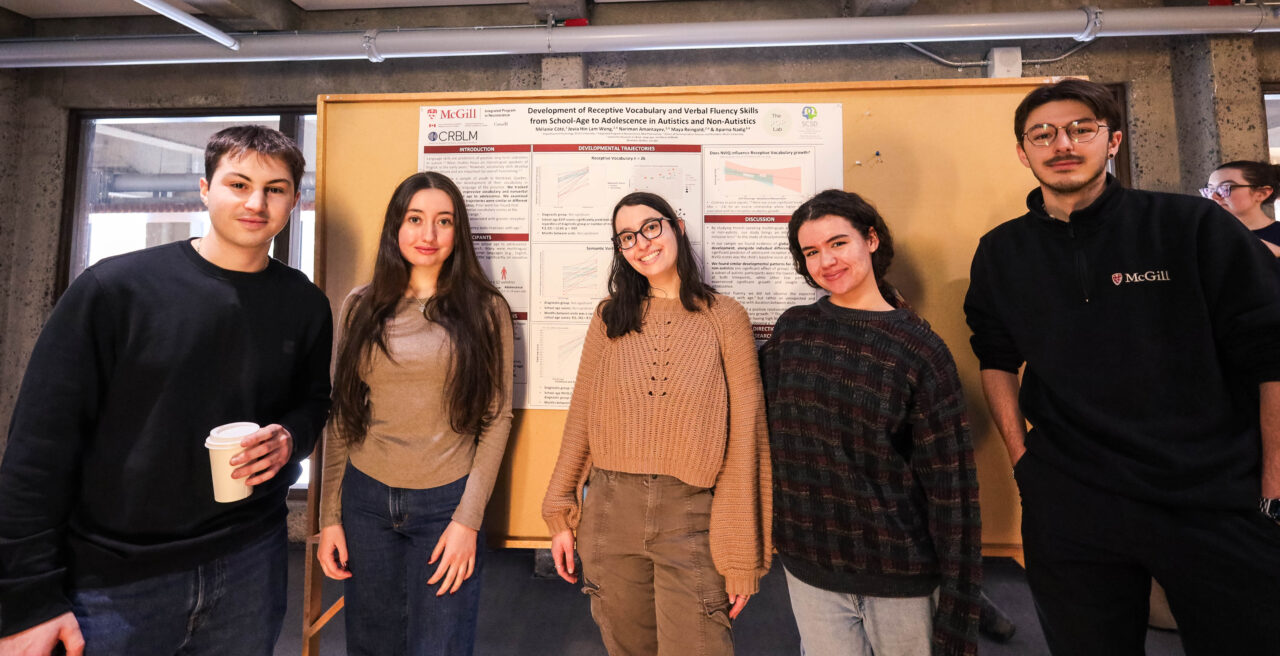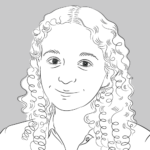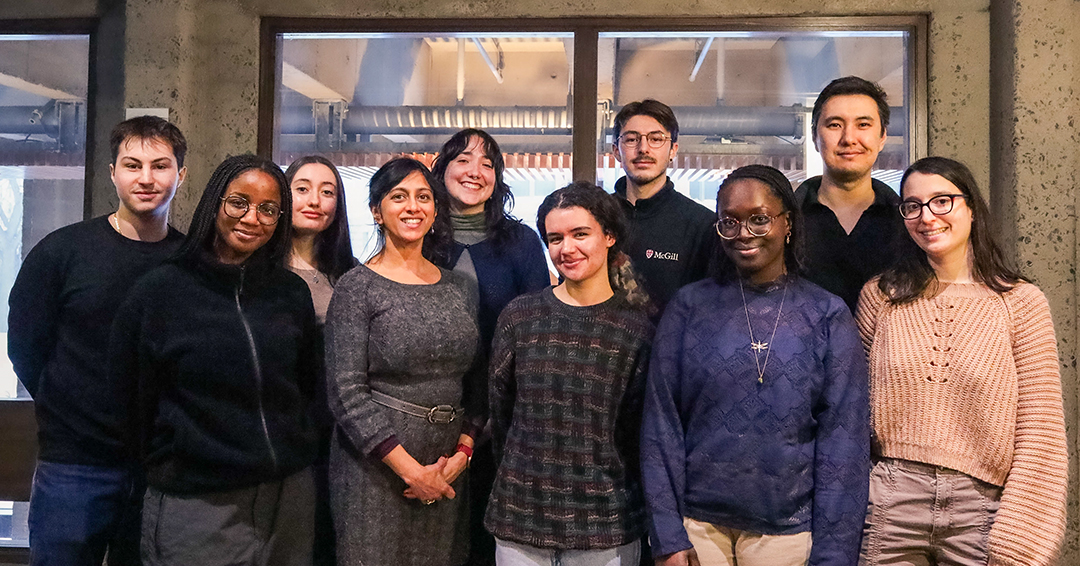
The annual event, which attracted more than 80 attendees, showcased research projects from students in the School of Communication Sciences and Disorders and other McGill units
Over 80 students and faculty gathered at the Leacock Building to share their research at the School of Communication Sciences and Disorders (SCSD) Research Day on February 21, 2025.
Comprising eight posters and six podium presentations, the annual event showcased the diverse range of research topics undertaken at the School. Although many of the day’s presenters were graduate students from the SCSD, the event also welcomed undergraduates who are conducting research supervised by the School’s faculty.
Nicole Li-Jessen, PhD, Graduate Program Director and Associate Professor at the SCSD and Canada Research Chair (Personalized Medicine of Upper Airway Health and Diseases), led the event alongside a committee of faculty members and students. She views Research Day as key to continuing to build “a very strong research community and culture” at the SCSD.
“In my own experience, having some exposure to different people, research and settings is a good thing for research students at any level,” she adds.
Highlighting research from the SCSD and beyond
This year, faculty members on the committee were joined by two student members: PhD candidates Fernanda Alonso Arteche and Nicola Phillips. Together, they chose to place greater emphasis on encouraging students outside the SCSD to present their work, including undergraduates in other units and faculties at McGill.
“It is particularly because our research is getting more cross-boundary and has very strong interdisciplinary components,” explains Prof. Li-Jessen. “This Research Day serves as an excellent venue for cross-pollinating research ideas.”
Lindsey Kamienik, a fourth-year student in McGill’s Honours Cognitive Science program, presented a poster on her project, Intra-Speaker Variability in Running Speech: Relationship with Cognitive Abilities and Bulbar status in ALS. Her work is supervised by Liziane Bouvier, PhD, Assistant Professor at the SCSD, who leads the Laboratory for Impaired Production of Speech (L.I.P.S.).
“[Research Day] was a really lovely environment,” Kamienik says. “It was really cool to get to talk to people in various different parts of their journey within the SCSD. I felt very encouraged, especially by the peers and the students who are older than me, but it’s also a great way of practicing how to communicate in science.”
Samin Moradi, a third-year PhD student at the SCSD, presented her project titled Examining the Neural Correlates of Vowel Perception using EEG Recordings with a Fast Periodic Auditory Simulation Procedure.
“It’s an exciting stage of my research where we are planning to do more, but we’re not 100% sure of every detail,” she says. “So, it was nice to discuss it with the population that also included future clinicians, professors and researchers.”
Dominique Louër, a fifth-year PhD candidate at the SCSD and finalist at the 2024 North America Three Minute Thesis (3MT) competition, presented a poster titled: Linguistic Markers of Cognitive and Motor Impairment in Parkinson’s Disease.
“Any time you have the opportunity to present your research, it helps you move forward,” she says, adding that she appreciated the opportunity to provide mentorship to younger students.
Bridging the gap between researchers and clinicians
A key objective of Research Day is to connect students in the School’s research training programs with those in its clinical master’s degree.
Carlos Pérez Valle, a fourth-year PhD student who presented his research on speech-language pathologists’ use of diverse children’s literature, says that improving knowledge sharing between research and clinical practice is his “personal mission”.
“There is this gap between what the research is saying, and what’s actually being done in practice, especially when it comes to the clinical implications of communication sciences and disorders,” he says.
Louër adds that the opportunity to speak to clinical students and faculty helps her ensure her research is relevant to clinicians and effective in improving patient care.
“Hearing their experiences was really useful to me,” she says. “It made me think: ‘What can I add to my research to benefit [speech-language pathologists] and their field?’”
The SCSD Research Day is one of the earliest opportunities for research students in communication sciences and disorders to share their work, explains Prof. Li-Jessen. It is, therefore, a first step on their journey from knowledge user to knowledge producer.
“By generating new ideas and knowledge and disseminating them to other people, I feel this is a transformation of their own identity and how they see themselves,” she says.
The full list of projects presented at Research Day can be found on the SCSD website.
View a photo gallery of the event below. Credit: Pearce-Tai Thomasson, Research Assistant, McGill Baby Lab
Related:

